We use cookies to improve your online experiences. To learn more and choose your cookies options, please refer to our cookie policy.
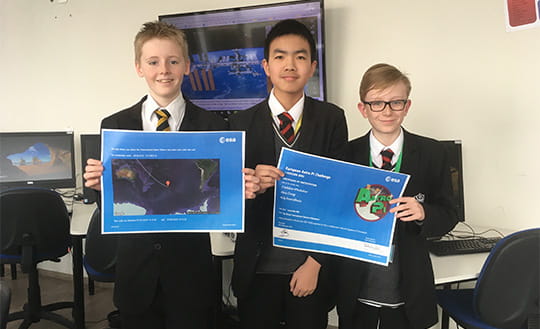
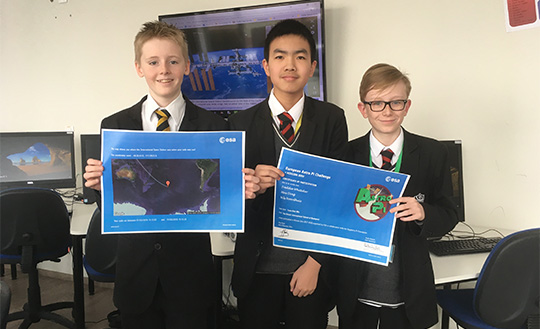
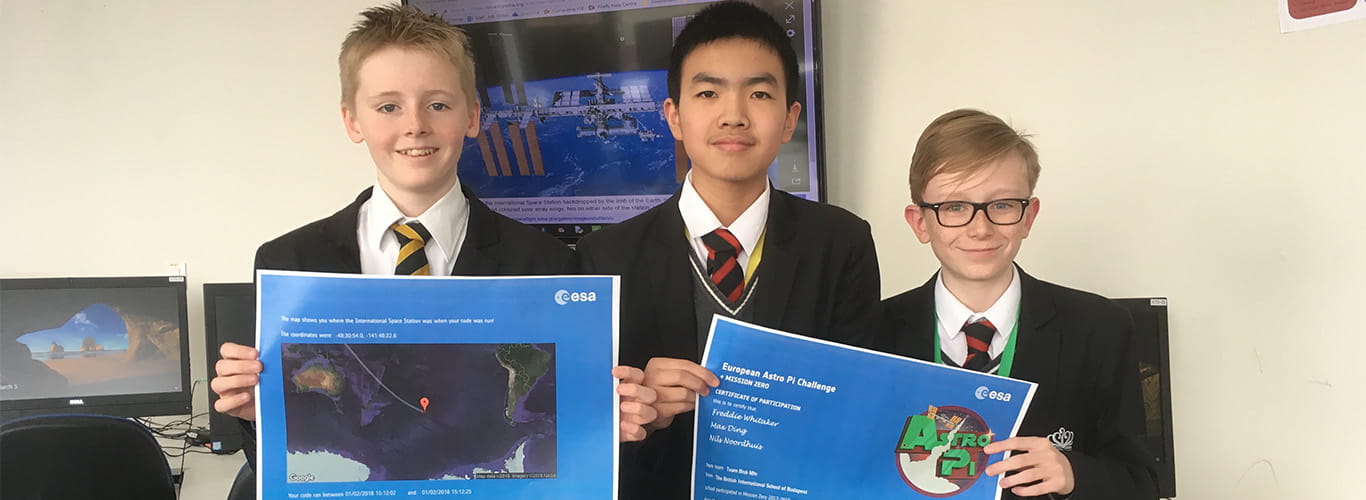
Congratulations are in order for the Code Club at the British International School Budapest in Hungary, whose code was run on board the International Space Station on Thursday, 1 February 2018! As part of the club’s weekly meetings, Team BISB spent many of those weeks learning Python code during their lunchbreaks. BISB’s Head of Computing Doug Semple tells us how it happened.
Year 8 students Freddie Whitaker, Nils Noordhuis and Zi Mo (Max) Ding's hard work has certainly paid off. Creating code that ran on board the International Space Station was an achievement far beyond what they could have imagined.
Students at BISB learn a variety of coding languages in Key Stage 3. Python is the language that BISB uses to teach IGCSE Computer Science and there is an option to also learn Java as part of IB Computer Science. In addition to our collaboration with MIT and Code Club, there is a rich array of STEAM Co-Curricular Activities on offer such as Lego Robotics and Drone Club.
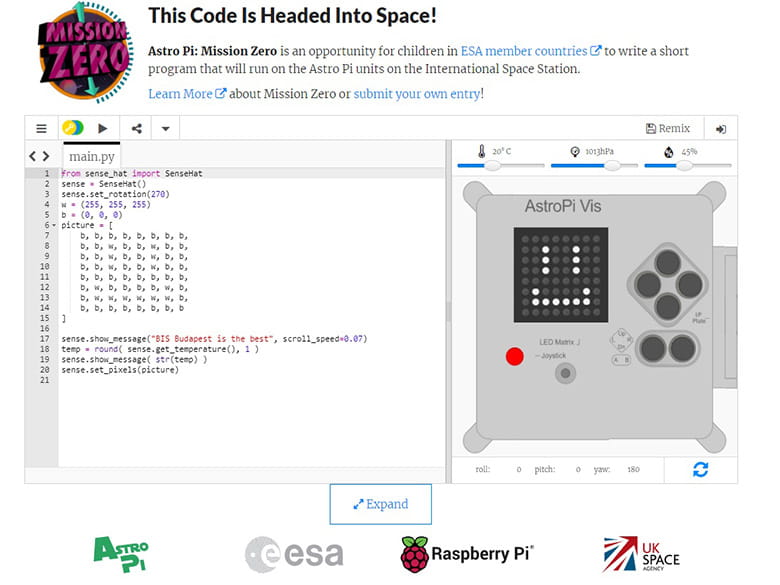
Astro Pi: Mission Zero is an opportunity for children to write a short programme that will run on the Astro Pi units on the International Space Station. Astro Pi computers come with a set of sensors and gadgets connected to a Raspberry Pi that can be used to run great scientific experiments by means of computer coding. The computers were taken to the space station by British Astronaut Tim Peake in 2016.
The Astro Pi has a matrix of LED lights that can display a message. The students’ code defined colours, and then scrolled the message “BIS Budapest is the best” across the screen, followed by a customised sprite of a smiley face that they defined pixel by pixel themselves. The school was given 30 seconds to run the code so the boys had to adjust the scroll speed and shorten British International School to “BIS”.
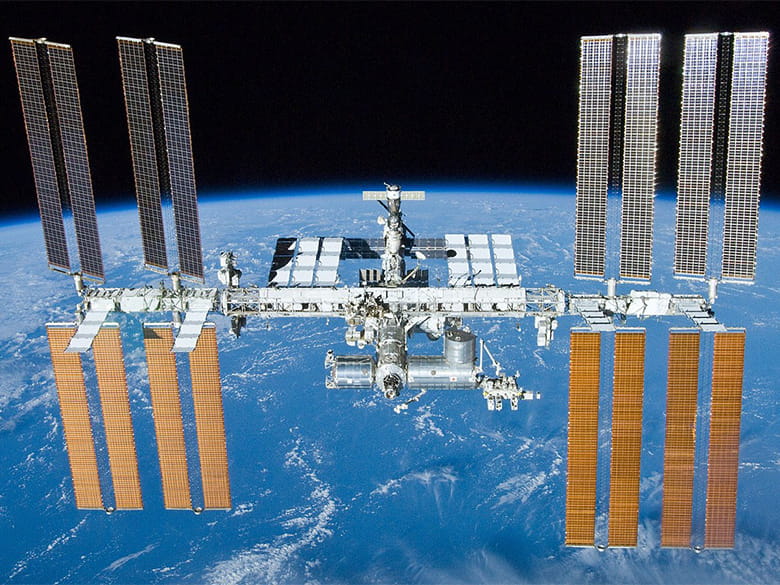
There are two Astro Pis on the space station. They can take readings on the environment inside the station, detect how the Astro Pi is moving through space and pick up the Earth’s magnetic field. Both of the two Astro Pis are also equipped with a camera; one has an infrared camera, and the other has a standard visible spectrum camera.
“We were really excited when we found out we could run our code in space,” said one of the students. The code ran for 23 seconds 408 km above the Pacific Ocean. The students received certificates from the European Space Agency showing the exact time and date that their code was run along with a map generated using NASA photographs.
We’re extremely proud - well done Team BISB! #BeAmbitious #NAEBeAmbitious